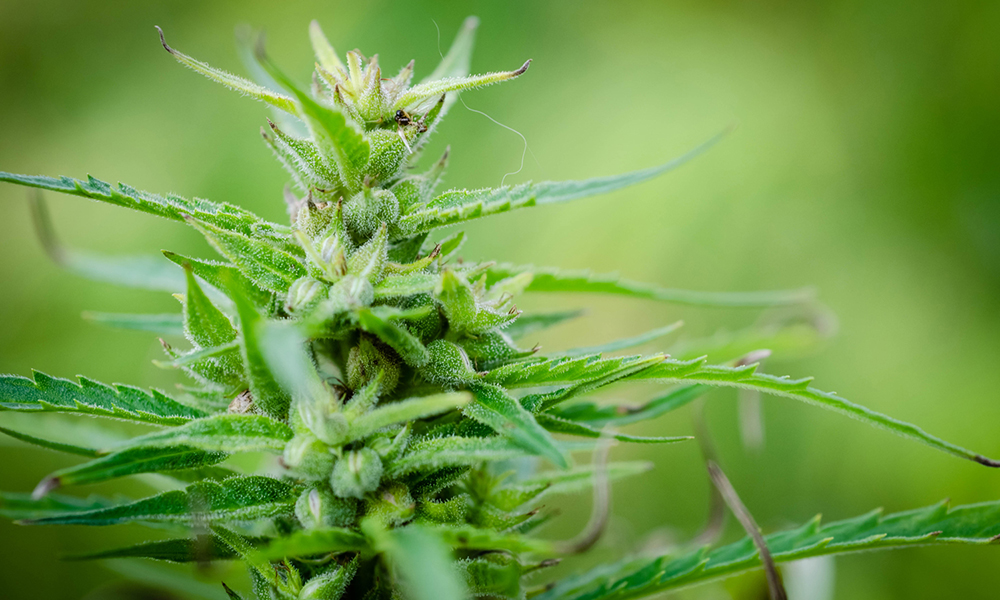Does Marijuana Help People with Disabilities?
Cannabis sativa (Marijuana) Plant
Can Marijuana Help the Disabled?
BASIC FACTS:
Marijuana come from a plant called “Cannabis sativa” which is grown world wide. Over 200 chemicals reside in the plant including the two best known -THC (delta-9-tetrahydrocannabinol), the psychoactive ingredient and CBD (Cannabidiol). Marijuana is derived from the mixture of the dried and shredded flowers of the plant and is greenish-gray in color. Hashish (hash), also common, is derived from the resins of the plant and the oil is a sticky, black liquid.
There are many ways to consume marijuana including rolling into a joint with rolling paper or smoking it with a pipe such as a bong. There are also numerous forms of edibles that can be consumed and more are being developed every year since it has become legal in some countries and in some parts of the United States.
Marijuana is the most commonly used “illegal” drug in the US. A Gallup Poll, completed in July 22, 2015 indicated that 44% of the population had tried marijuana and 10% use it on a regular basis. A cautionary note about the accuracy of such surveys is since it is illegal in the US, some respondents may not report accurately.
Marijuana is still classified as a Schedule I drug in the United States even though it has been proven to be safe to use. Marijuana is not addictive and no deaths have ever been reported from its direct use. On the other hand, the most popular drug in the world, alcohol in all of its many forms, is addictive and results in millions of deaths each year. The World Health Organization (WHO) reported that in 2012 3.3 million deaths occurred world-wide due to the direct use of alcohol.
FACTS VERSUS FICTION:
It is extremely difficult to make definitive statements about the effectiveness of Marijuana in its various forms due to the interference of government into research of these potentials. In 2014, Business Insider reported up to that time only 6% of the research done on marijuana involved the potential medical benefits. Although more research is being conducted in the US at this time, the government continues to classify marijuana at the federal level as a schedule I drug and routinely discourages impartial, third party research into the medical benefits of marijuana.
My conclusion is that there is ample reason to begin impartial intensive research into the benefits of marijuana medically based on a sampling of the few studies done and the anecdotal data and claims of persons who have witnessed improvements of various medical conditions after using one or more forms of marijuana. I consider it an act of extreme negligence on the part of the US government to continue obstructing the research and use of marijuana.
MEDICAL USES FOR MARIJUANA:
The following are uses and potential uses of marijuana to improve medical disorders and conditions.
PAIN: The most common medical use of marijuana is for the reduction of pain caused by various disorders. Marijuana seems to be most effective with neuropathic (nerve) pain of various origins. Just for use of pain, marijuana could improve the lives of millions of people. Below is a very modest number of disorders which cause neuropathic pain:
(a) Diabetes
(b) Fibromyagia
(c) Drug Toxicity such as drugs for HIV and others such as antibiotic toxicity.
(d) Neuropathy caused by alcoholism
(e) Neuropathy caused by amputation
(f) Facial Nerve Disorders
(g) Shingles
(h) Hundreds of others
2. Multiple Sclerosis: Some research and many claims have suggested marijuana is very
effective in treating MS.
3. Nausea: Yes, this is a serious condition for many. Research suggests that marijuana both
reduces nausea and increases appetite which is essential for AIDS patients and many others.
4. Epilepsy and Other Seizure Disorders: Some research and numerous reports via anecdotal
data have shown improvement or elimination of seizures after the use of marijuana. Much of
data has not been adequately researched and I strongly recommend the government get out of
the way of research and also fund it.
5. Anxiety: Many studies and even more testimonials indicate that marijuana is effective for
the reduction of anxiety.
6. Reduction of Opiate Addition: The use of marijuana in place of the usual opiates for severe
pain has been proven to reduce addiction rates in states where it is legal by over 25%
7. Traumatic Brain Injuries: In the early 2000s, the NFL began funding research to investigate
whether marijuana could reduce the effects of TBIs on former players. The research should be
upgraded for all other causes of TBI, many of which are caused during armed conflicts.
A large number of US Veterans come home with TBIs.
8. Depression: Some studies suggest that depression can be reduced significantly with the use of
marijuana. More research is needed.
9. Bipolar Disorder: Some research studies indicate that Bipolar Disorder can be improved with
the use of marijuana, especially with regard to cycling.
10. Arthritis: Some research and many testimonials have indicated arthritis can be improved or
prevented by the use of marijuana. More research is needed.
11. Cancer: Some research and many testimonials have indicated that cancer can be treated
effectively with marijuana. Much more research is needed.
12. Alzheimer’s Disease: Some research has indicated that this disease is also helped by the use
of marijuana.
13. Palliative Care: Some research indicates that marijuana can be very beneficial to patients
who are involved with such end of life care.
It should be noted that many of the diseases/disorders listed above (such as seizure disorders) were treated with a mixture of CBD (Cannabidiol) – non-psychoactive chemical and THC (delta-9-tetrahydrocannabinol) the psychoactive chemical. Note that THC was given in very small doses.
There are dozens of other diseases and disorders where claims have been made of major improvement or cures after using marijuana. Unfortunately, the government has continued to block impartial research to further investigate in a scientific manner the possibilities for these conditions being treated by Marijuana. Also note that the research is so poor, it has not been determined if marijuana impacts driving abilities significantly and if so, at what levels.
It is my opinion that the government, the Alcohol Industry and the Pharmaceutical Industry continue to block legalization of this harmless drug and research into the positive effects. We must put an end to this.
We must legalize the use of marijuana for the sake of millions in the US and elsewhere who could benefit greatly from its medicinal effects.
Not discussed in this article is the value of legalization of marijuana in terms of the numbers of lives destroyed by non-violent persons being incarcerated for decades for using a beneficial drug. The ACLU reported that in 2010 52% of all drug arrests were for marijuana, a beneficial and harmless drug.
By Richard Wolf “I am disabled and am unable to work but spend my time trying to advocate for the needs of others. I have created an organization called the Elkhart Advocacy for the Handicapped and Disabled to help disabled people in the North Central Indiana area. We need to start publicizing the truth about issues related to the disabled and elderly. The general public does not understand and is not aware of the plight of the disabled. The disabled are the first to receive cuts for services and the mainstream media whitewashes the facts. This blog intends to provide information to all so that support for the disabled can grow.”
Would life feel more satisfying if you could create a positive self-image? Click HERE to learn more about the Mindset for Success – MasterKey Neuro-Meditation Video.
Know where you‘re going, Strategize Your Actions, Upgrade Your Skills, Maximize Your Environment, and Master Yourself. Click HERE to Schedule a Breakthrough Session Today!
 ARE YOU READY TO END THE STRUGGLE? Click HERE to join my Facebook group.
ARE YOU READY TO END THE STRUGGLE? Click HERE to join my Facebook group.









